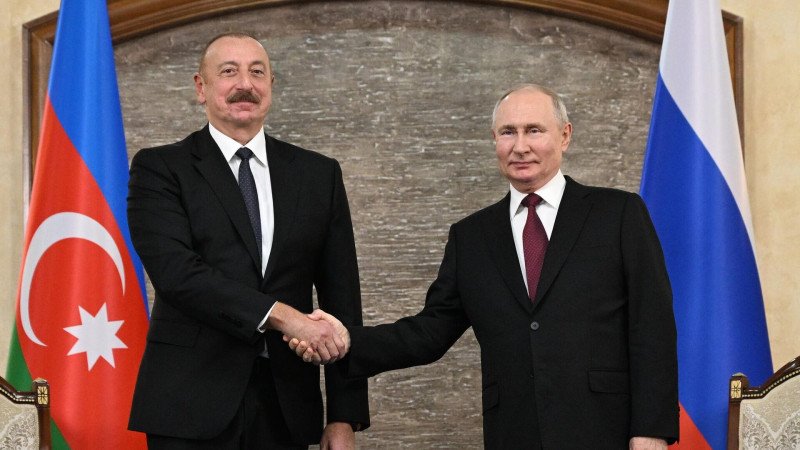According to The Washington Post, ties between Russia and Azerbaijan—once close allies—have sharply worsened as Baku pushes back against Moscow’s dominance in the Caucasus region, seeking closer partnerships with Turkey and Israel.
The report highlights that after years of tight cooperation in the strategically sensitive South Caucasus area by the Caspian Sea, Azerbaijan has grown bolder in challenging Russia’s influence, especially while Moscow remains preoccupied with the war in Ukraine.
Tensions escalated significantly following a tragic incident last December involving the crash of an Azerbaijan Airlines flight bound for Grozny. The plane, carrying 67 passengers, went down in Kazakhstan, killing 38. Despite initial Russian denials, evidence emerged that the aircraft was shot down by a Russian surface-to-air missile.
President Ilham Aliyev demanded that Russia acknowledge responsibility and compensate both the Azerbaijani government and victims’ families. Russian President Vladimir Putin apologized for the “tragic incident” in Russian airspace but stopped short of accepting official liability, fueling further anger in Baku.
Before the incident, relations appeared amicable: Putin and Aliyev exchanged embraces during a state visit to Azerbaijan and shared informal dinners. However, in 2025, Aliyev notably snubbed Putin by skipping the Moscow Victory Day parade, an annual event for leaders of former Soviet states.
Further signaling Azerbaijan’s shifting alliances, Ukraine’s Foreign Minister Andriy Sybiha visited Baku in May, reflecting closer ties between Azerbaijan and Kyiv.
Observers note a clear decline in Moscow’s once unchallenged regional sway. Russian political analyst Vladimir Pastukhov told The Washington Post that without its decisive victory over Armenia and without the backing of Turkish President Recep Tayyip Erdoğan, Aliyev would not have dared such moves. He described Azerbaijan’s stance as a “significant slap to the ‘Russian world.’”
Pastukhov also stressed that Russia’s war in Ukraine has left its eastern and southern borders vulnerable, exposing them to painful setbacks—a trend likely to intensify going forward.
In sum, Azerbaijan’s pivot away from Moscow and toward Ankara and Tel Aviv marks a significant geopolitical realignment in the South Caucasus, underscoring Russia’s diminishing influence amid ongoing regional and global pressures.




